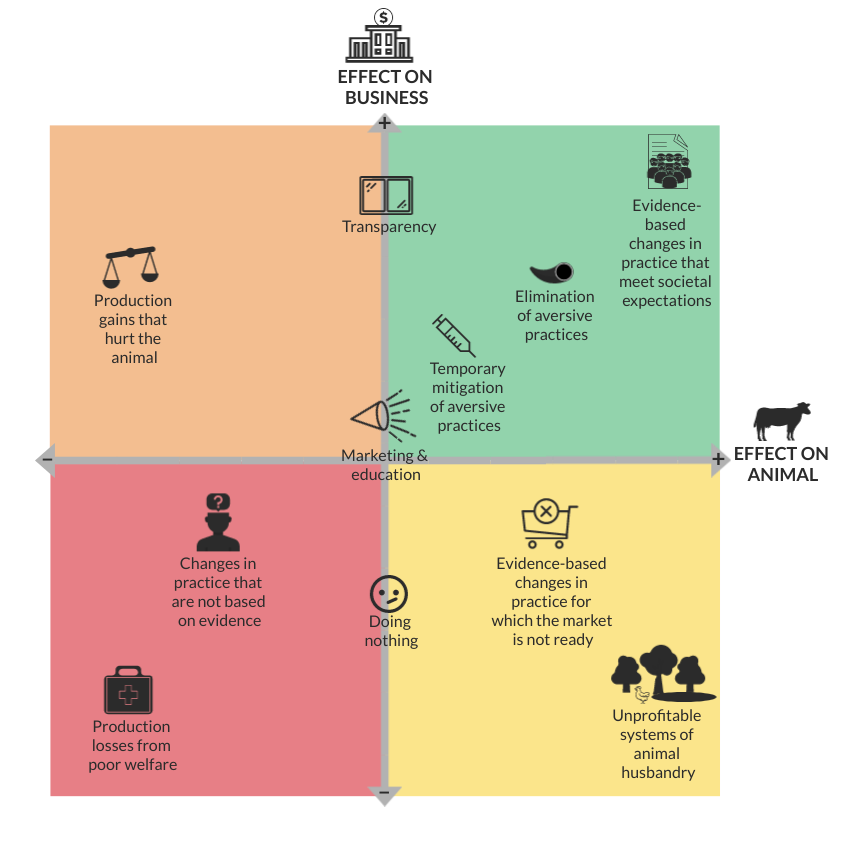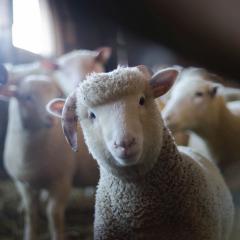Many livestock companies are aware that Australians have growing concerns over the welfare of animals. But it costs money to improve the welfare of farm animals – often a substantial investment by the business. There are many financial, practical, and ethical factors for businesses to consider when improving animal welfare, and the optimal course of action is not always obvious.
An article published in the Agriculture journal seeks to address this dilemma facing businesses and farmers. The article, titled “Costs and Benefits of Improving Farm Animal Welfare,” written by animal welfare scientists in a collaboration between the Animal Welfare Science Centre and The Animal Welfare Collaborative at The University of Queensland, carefully weighs the costs and benefits of improving and not improving farm animal welfare, with a particular focus on the Australian livestock sector.
The article also provides an easy-to-use decision tool to support people with farm animals under their care to make evidence-based decisions about changes in practice to improve animal welfare.

Many of the costs are obvious. For example, training of stock people, reconfiguration of pens, and administration of pain relief can improve farm animal welfare, but all of these come with costs. On the other hand, the costs of not improving animal welfare may be less obvious but are just as significant. For instance, businesses may run the risk of losing a portion of their customers to higher welfare products, they may be shut out of certain international markets almost overnight, they may be forced to implement costly changes with the introduction of new legislation, or they may gradually lose their social licence to farm by not ensuring good animal welfare.
The benefits of improving farm animal welfare are also difficult to evaluate from a purely economic perspective. Most farmers acknowledge that animals with poor welfare are unlikely to produce at optimal levels, but there may be other benefits of improving farm animal welfare that extend beyond production gains. These include benefits to the animal, positive effects on the workforce, competitive advantage for businesses, mitigation of risk, and positive social consequences.
The full article weighs these considerations and integrates them into a decision tool that can assist people with farm animals under their care, and the authors highlight the need for further empirical evidence to improve decision-making in animal welfare.
Fernandes JN, Hemsworth PH, Coleman GJ, Tilbrook AJ. Costs and Benefits of Improving Farm Animal Welfare. Agriculture. 2021; 11(2):104. doi.org/10.3390/agriculture11020104
Research contact: Dr Jill N. Fernandes, Centre for Animal Science, Queensland Alliance for Agriculture and Food Innovation, The University of Queensland, M: 0498 019 840 T: +61 7 3346 2170 E: j.ulrich@uq.edu.au, W: theanimalwelfarecollaborative.org or Professor Alan Tilbrook, T. +61 7 334 62170, E. a.tilbrook@uq.edu.au
The Queensland Alliance for Agriculture and Food Innovation is a research institute at The University of Queensland, established with and supported by the Queensland Department of Primary Industries.

 The Animal Welfare Collaborative (TAWC)
The Animal Welfare Collaborative (TAWC)


